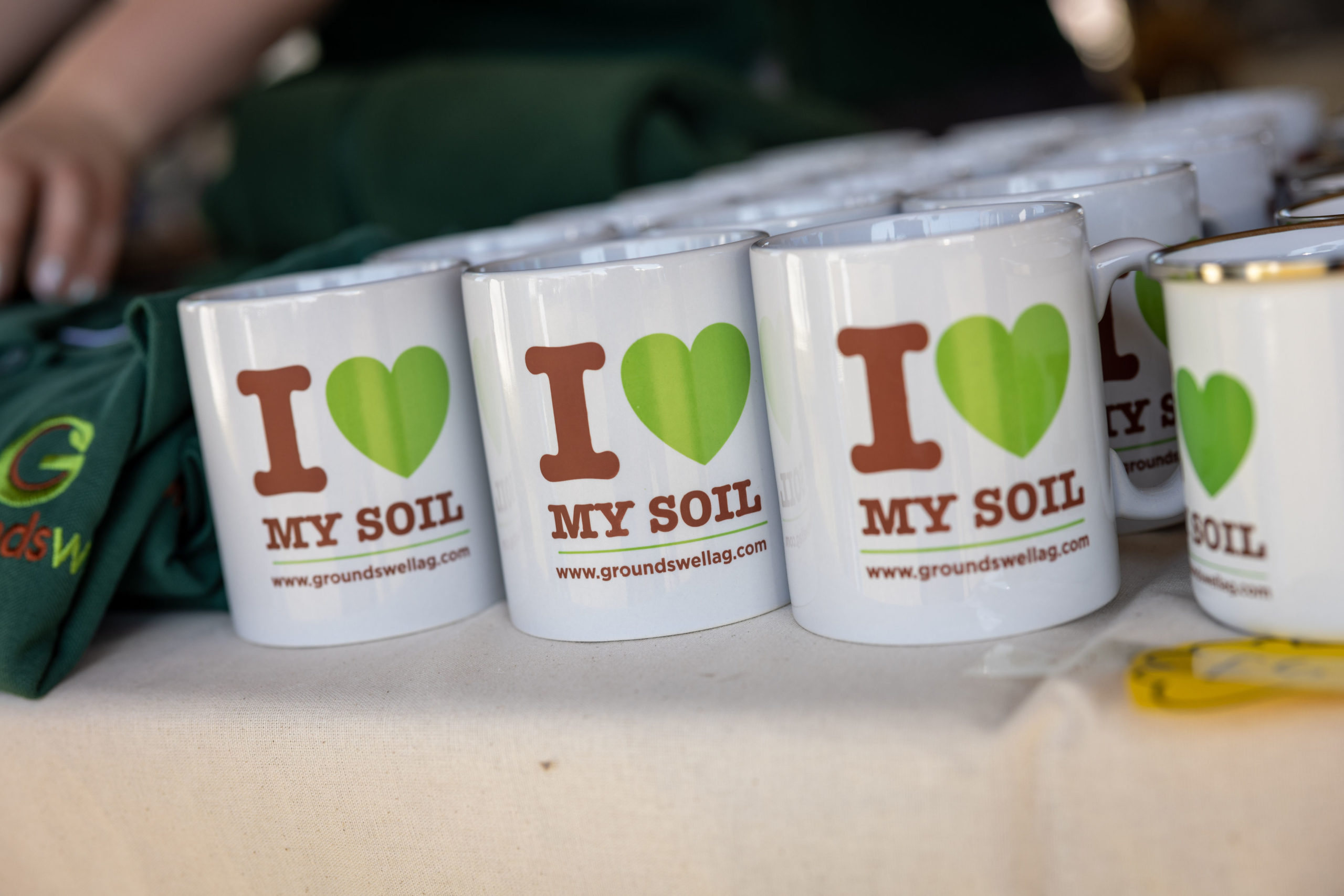On the final day of the UK’s largest regenerative agriculture event, Groundswell, George Eustice, Defra’s Secretary of State revealed details of the first module of the Sustainable Farming Incentive (SFI), to be launched on 30th June.
Groundswell 2022 was a sold-out event, with over 5,500 visitors flocking to Lannock Manor Farm in Hertfordshire. The two-day show and conference hosted and organised by the Cherry family, was born from their own desire to learn more about the theory and practical applications of regenerative agriculture.
With over 140 sessions to attend, the event offers a platform of discussion for household names, alongside technical experts, experienced regenerative farmers and leading researchers to explore and debate the issues, policies, science and practices, around regenerative agriculture.
“We have just had the best two days,” said Paul Cherry. “It’s been fantastic to see so many people. Thanks to all our exhibitors, all our enlightening speakers and our sponsors in particular. But most of all, this event would not work without all these amazing farmers, students and scientists. We’re already looking forward to seeing everyone again next year.”
SFI Announcement
George Eustice, Secretary of State for Defra, chose the event to announce further details of the SFI. “It is really important that we create the space for innovation, to try new things and tailor them to the individual farm,” he said.
“We’ve challenged very hard to try and make sure that we stick to the principle of simplicity. So, there are no application windows and no deadlines.”
Mr Eustice explained that applicants can expect their first payment within three months with regular quarterly payments thereafter and announced the theme of the first module: “We’ve started with soil because it is at the heart of successful, profitable farming. It is also – if we get things right – the first part of the ecosystem that will start to recover.”
Next year, two more modules will be launched: one on nutrients and another on hedgerows. The final module, Mr Eustice confirmed, would centre on Integrated Pest Management (IPM).
Commenting on the Groundswell event, Mr Eustice added: “It’s amazing to see such creative thinking, new ideas being pioneered, new agronomic techniques and indeed, the rediscovery of old ones.”
During the day, Mr Eustice was joined on stage by: Minette Batters, tenant farmer and NFU President; Baroness Natalie Bennett, former leader of the Green Party; Tony Juniper, Chair of Natural England; in a panel chaired by Baroness Rosie Boycott, journalist and publisher.
“The Sustainable Farming Incentive is a great start,” said Mrs Batters in response. “But it is only the start, what is needed now are the baseline metrics. Let’s get behind one tool and develop a common methodology, starting with the soil.”
In an earlier session titled ‘How is big business adopting regenerative agriculture?’ Tesco’s Head of Environment, Ann Turrell said that we cannot wait for government. “It is so important to move together collectively as a ‘food industry’ and, that we face and advocate – particularly with government – the changes we need to see on a regulatory and legislative basis. We need to raise the bar on that.”
Elsewhere in the programme speakers tackled practical issues such as ‘does it make financial sense to go regen?’, ‘do potatoes have a place in regen systems?’, ‘how to think like a grazier’ and ‘the threat of weeds for regenerative agriculture.’
Conservation agriculture and regenerative techniques
The ‘down to earth’ ethos of the event has been well-supported by sponsors and exhibitors, with many showcasing varieties, blends, cover crops and machinery suited to regenerative systems.
Cover crops and companion cropping, with their multiple benefits for soil health, featured throughout the day, with talks and demonstration plots delving into the detail of getting the most from them.
Three farmers with extensive experience with intercropping took to the stage in a session titled, ‘How to team up plants: a farmer-to-farmer surgery.’ Despite years of experimentation, experience and many successes, Doug Christie, a mixed farmer managing 540ha in Fife in Scotland, admitted he still has more questions than answers. “Intercropping gives us a platform to drastically reduce the use of synthetic nitrogen,” he said. Discussions also explored separating seed, different combinations of crops and the impact on yield.
Headline sponsor, Affinity Water, hosted a session on multi-species cover crops: evidence, practicalities, and benefits of more diversity. Shaun Dowman, Agricultural Advisor at Affinity Water explained why: “In this part of the world, we are reliant on ground water and we’re working with farmers to see whether we can help with issues such as nitrogen leaching. Water scarcity, is going to be an increasing challenge but the sorts of practices being discussed at Groundswell build resilience – good soil management helps increase infiltration, reduce run-off and are good for the water environment.”
Recordings of many of the sessions from this year’s event will be available on Groundswell’s YouTube channel in the coming weeks and dates for next year are 28th and 29th June 2023.

